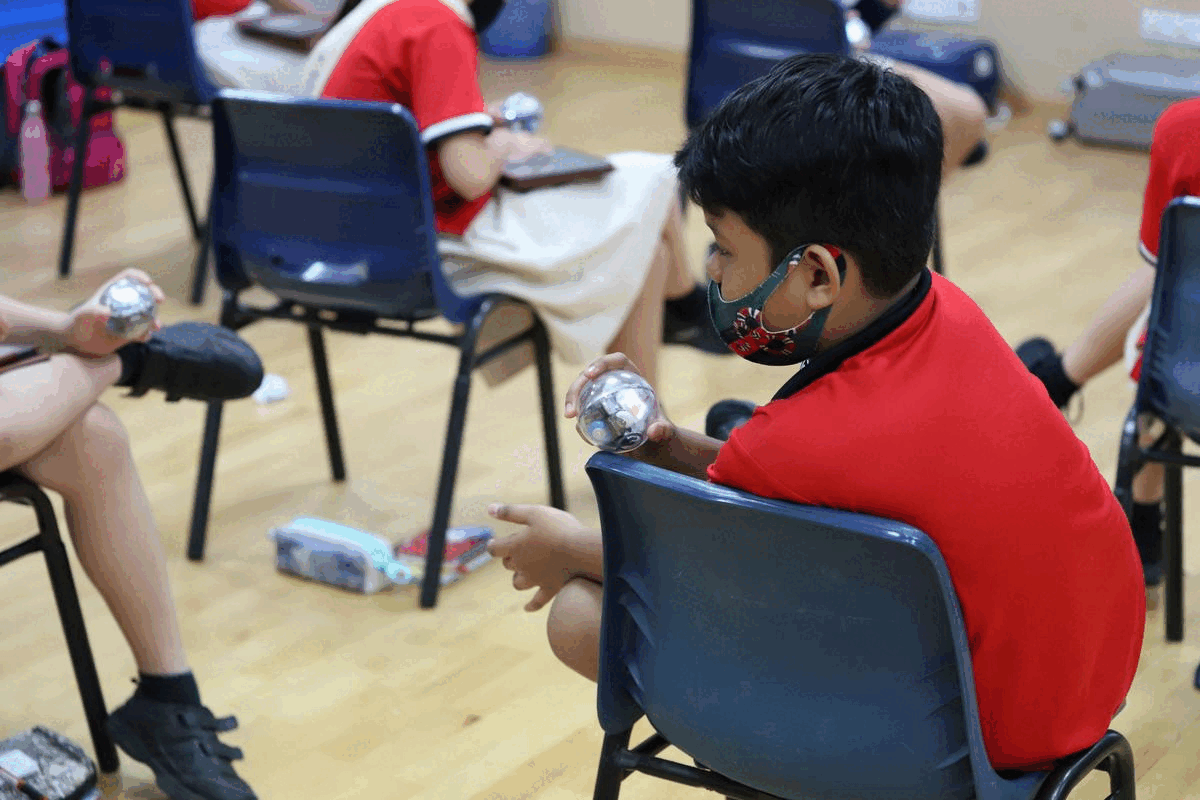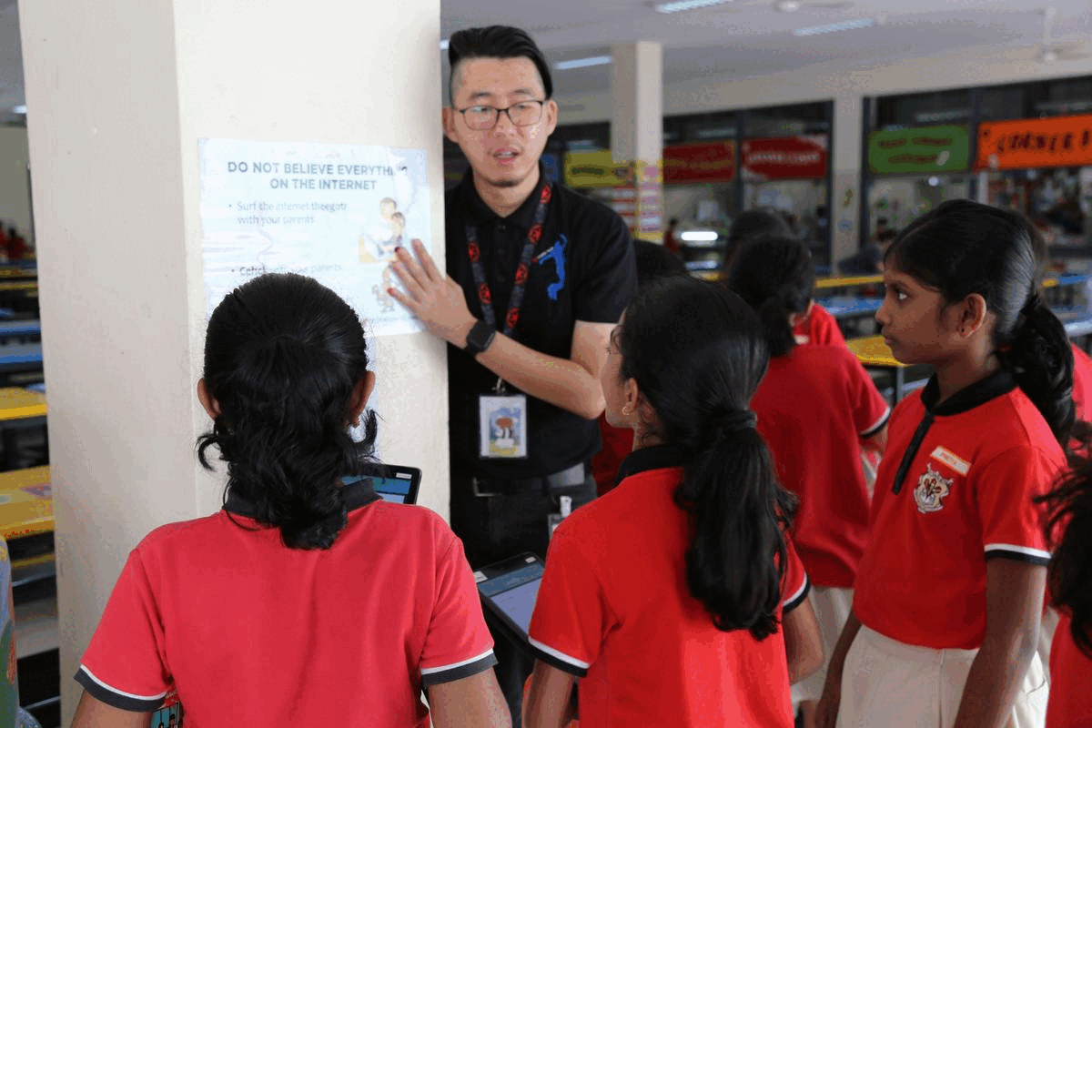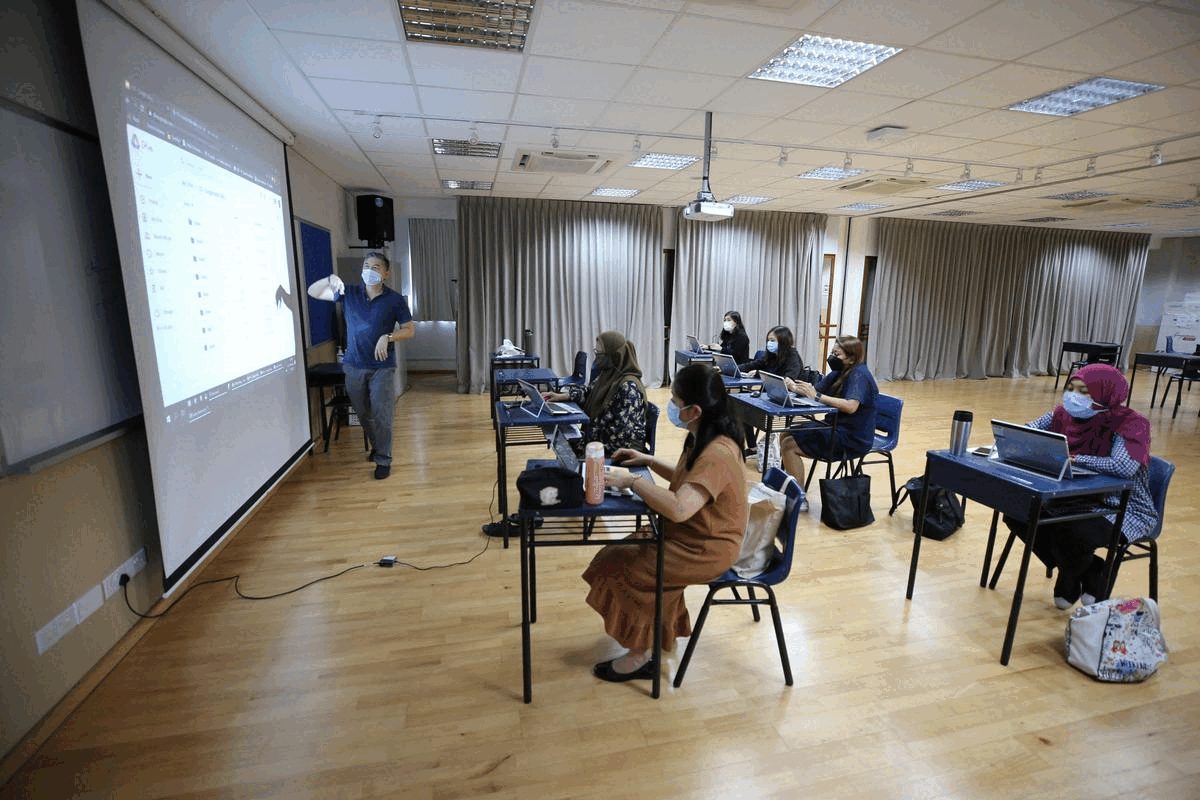Information and Communications Technology
Information and Communications Technology
Department Overview
The school is committed to nurture Future-Ready Digital Learners in our students. In alignment to MOE’s Educational Technology Plan, we believe the effective use of educational technology will help students develop intrinsic motivation and take ownership of their learning.
Technology is harnessed in support of the school’s Total Curriculum Framework and to deepen subject mastery and develop 21st Century Competencies in our students. In order to achieve a learner-centered digital environment, the school focuses on:
- Harnessing Technology in Curriculum & Pedagogy
- Enhancing Digital Literacies in Our Learners
- Nurturing Responsible Digital Citizens
- Developing Teachers’ capacity in E-pedagogy
Department Members
| Head of Department | |
|---|---|
| Mrs Tan Yoke Yin | |
| Members | |
| Ms Kim Qing Xian | Mr Danny Asmara Bin Rahman |
| Mdm Pay Soo Cheng | Mdm Irma Bte Hassan |
| Mdm Siti Nazhira Binte Mohd Aini | Mr Sim Bee Keat |
| Ms Yang Hui Yi | Mdm Tan Chai Hia |
| Mr Wong Song Pei | Mr Teo Guo Shun Eugene |
| Ms Jayne Pan Ting | |
| Mr Lew Jia Chien (ITC Manager) | Mr Mohamed Hilman Bin Mohamed Basri (ICT Trainer) |
| Mr Koh Geng Kai (Desktop Engineer) | Mr Mohamed Razi Bin Mohamed Sahar(Desktop Engineer) |
Key Programmes
Harnessing Technology in Curriculum & Pedagogy
Active Learning is carried out via platforms such as Singapore Student Learning Space (SLS).
The school acknowledges Blended Learning as a regular feature of the schooling experience. With Blended Learning, students will learn what is prescribed by the curriculum through a mix of home-based and in-school activities, and leverage both online and offline approaches to learning.
This form of learning helps students in developing 21st century competencies such as critical thinking skills and to apply self-directedness and self-management.

Enhancing Digital Literacies In Our Learners
The ICT department aims to provide learning opportunities to develop student’s future readiness. Through a structured digital literacy programme, students are exposed to coding, computational thinking and new technologies progressively. This is important as computing technology plays an increasingly important part in our society.
Combining elements of fun, collaboration and creativity, students apply their knowledge in coding and computational skills to explore and solve problems in an authentic context.

Nurturing Responsible Digital Citizens
Students are equipped with the knowledge and awareness of topics related to Cyberwellness so that they know how to be safe and use technology responsibly. They learn to be responsible digital citizens through explicit teaching during Form Teacher Guidance Periods (FTGP) and Character and Citizenship Education (CCE) lessons, as well as from short bite-sized presentations during morning assembly.
In addition, students engaged in experiential learning activities during Cyberwellness Awareness Week. Through these activities, students are more aware of issues such as cyberbullying, excessive screen time and navigating the internet safely and responsibly.

Developing Teachers’ capacity in E-pedagogy
The school adopts a 3 prong approach (school wide, level base and just-in-time) for the professional development of teachers in e-pedagogy. These approaches aim to develop our teachers to be competent in harnessing technology for lesson delivery in class and virtually.
A key focus of the teacher’s professional development programme is to develop teachers’ ability to analyse and interpret students’ learning and assessment data to develop interventions, and to continually improve the design of learning experiences.


